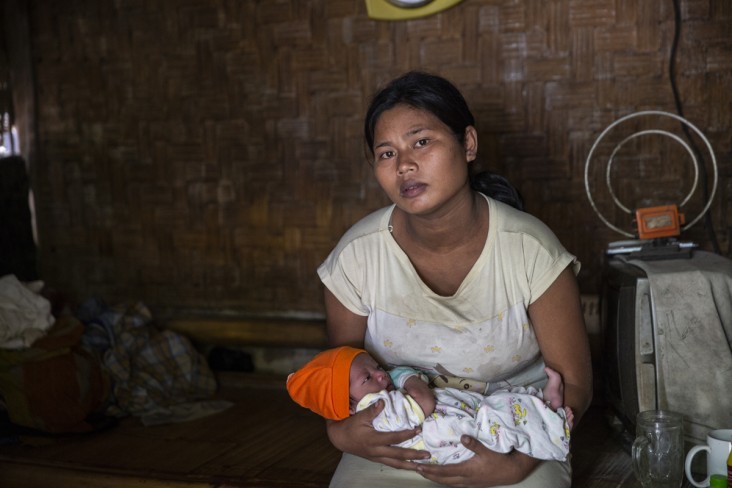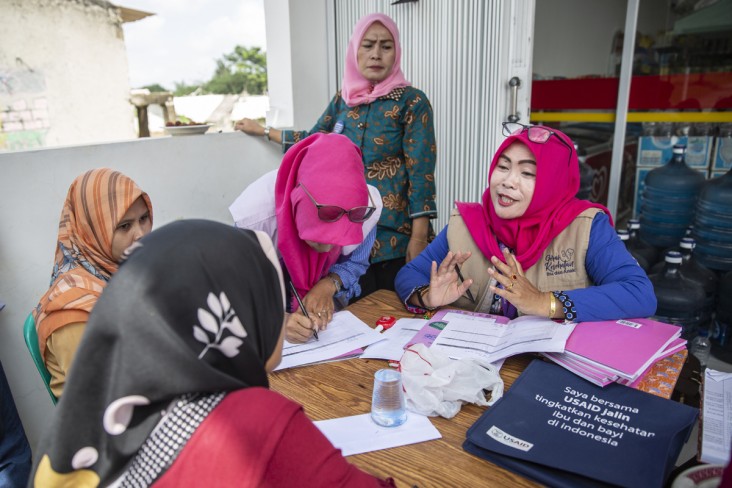Speeches Shim

Through a public-private partnership with local convenience stores in Tangerang district of Indonesia, USAID helped more than 4,000 women of reproductive age access antenatal care and delivery services in 2019 alone.
When 27-year-old Ibu Asnah was pregnant with her third child, giving birth in a healthy facility did not cross her mind. Her first two children were born at home with assistance from a traditional birth attendant, and she worried that the cost of delivering in a health facility would be too high for her family to afford. Asnah was not aware of the risks of at-home deliveries, especially in cases where the pregnancy is high risk.
With 177 deaths per 100,000 live births, Indonesia has one of the highest rates of maternal mortality in Southeast Asia.1 Major inequalities also exist in women’s access to antenatal care and skilled birth attendance at delivery. USAID is working in the Tangerang district of Indonesia—which has one of the country’s highest rates of maternal mortality—to increase women’s maternal and newborn health knowledge and improve access to quality antenatal care and delivery services. USAID has partnered with Alfamart, a nationwide convenience store chain that is commonly frequented by women and families, to support health corners where midwives hold free counseling sessions for women of reproductive age. During these sessions, midwives provide information on how to use the government-provided health booklet to track pregnancies, schedule antenatal care appointments, and understand the symptoms of high-risk pregnancies. Through partnership with Alfamart at five locations in Tangerang district, USAID helped more than 4,000 women of reproductive age access antenatal care and delivery services in 2019 alone.
Through neighbors, Asnah learned about the USAID-supported health corners located at an Alfamart near her home. While attending one of the free counseling sessions, midwives informed Asnah that she likely had a high-risk pregnancy. “It turns out my amniotic fluid was leaking, and I also had frequent contractions and hypertension,” explains Asnah. After explaining the risks, the midwives referred her to a local health facility equipped to manage pregnancy complications. They also also explained that it would be free for her to give birth at the facility using the national health insurance.
“Because of the information from the midwives at the maternal and newborn health corner, I decided to follow their advice to give birth at the facility. Thank God, my son, Restu Pantura, was born healthy just a week after that consultation,” says Asnah.
Generating Long-term Sustainability
After demonstrating the success of the maternal and child health corners, USAID successfully engaged village heads in the Tangerang district to allocate long-term funding to support the continuation of these corners. Local hospitals and village leaders have also dedicated additional resources to expand the maternal and child health corners to two additional Alfamarts and cover the transportation fees for midwives and other staff supporting these corners. USAID continues to engage with the local government on ways to scale up these corners to other easily accessible locations, such as traditional markets and public service centers. By securing long-term financial commitments from local stakeholders, USAID is ensuring that these health corners can continue to provide free counseling, check-ups, and other vital health services to women in need long after USAID’s assistance ends.

Download the PDF version of this story. [PDF, 1MB]

Comment
Make a general inquiry or suggest an improvement.